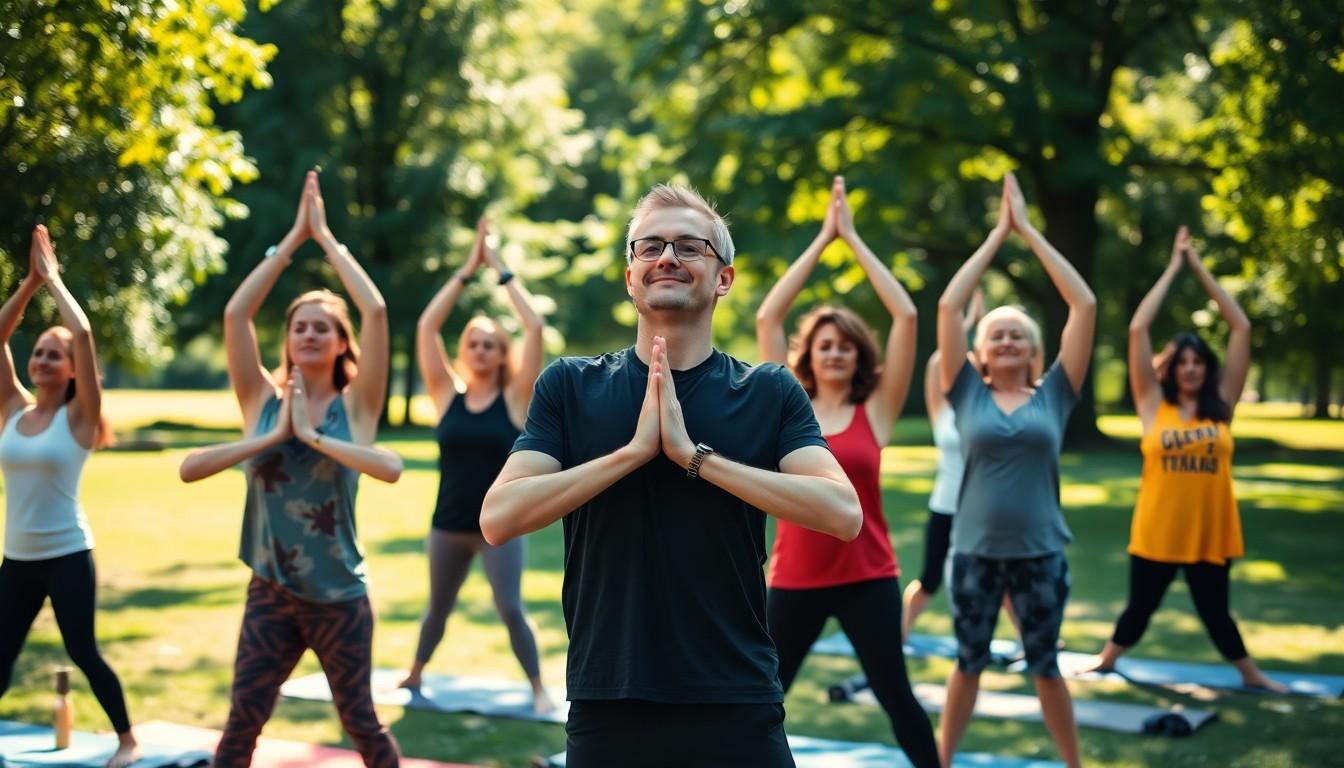In a world where stress levels soar and fast food reigns supreme, embracing holistic health might just be the secret sauce to a happier, healthier life. Think of it as the ultimate wellness buffet—offering everything from yoga and meditation to herbal remedies and nutrition. It’s not just about avoiding that third slice of pizza; it’s about nourishing the mind, body, and spirit all at once.
Holistic Health Examples
Holistic health focuses on the overall well-being of individuals. This approach integrates physical, emotional, and spiritual aspects to create a balanced life.
Definition of Holistic Health
Holistic health emphasizes treating the whole person, not just specific symptoms. This method incorporates various practices such as body work, nutritional counseling, and mindfulness techniques. By addressing multiple facets of health, individuals can achieve long-lasting wellness. Practitioners often use alternative therapies alongside conventional medicine to enhance healing. Understanding the interconnectedness of different health aspects is vital for achieving optimal results.
Importance of Holistic Approach
A holistic approach encourages comprehensive wellness rather than isolated treatment. Physical health deeply influences mental and emotional well-being, establishing a clear connection between these aspects. Individuals who embrace holistic practices often experience lower stress levels and improved mental clarity. Moreover, this approach fosters healthier lifestyle choices, contributing to increased resilience against illnesses. Prioritizing holistic health allows individuals to cultivate a balanced, fulfilling life.
Examples of Holistic Health Practices
Holistic health practices encompass various activities aimed at nurturing body, mind, and spirit. They often involve integrating multiple wellness strategies.
Mindfulness and Meditation
Mindfulness involves focusing on the present moment through awareness and observation. Meditation encourages relaxation and mental clarity. Practicing mindfulness reduces stress by promoting acceptance of thoughts without judgment. Techniques like guided imagery or breathing exercises are common in meditation sessions. Regularly engaging in these practices enhances overall emotional well-being and cultivates a balanced mindset.
Nutrition and Diet
Proper nutrition plays a vital role in holistic health. A balanced diet incorporates whole foods, including fruits, vegetables, lean proteins, and healthy fats. This approach emphasizes the significance of nutrient-rich meals over processed foods. Individuals often explore dietary patterns such as plant-based diets or whole-food diets to nourish their bodies effectively. Nutrition also influences energy levels, mood, and mental clarity, making it essential for a holistic approach to wellness.
Physical Activity and Movement
Physical activity creates a strong foundation for holistic health. Engaging in various forms of movement like yoga, strength training, or cardiovascular exercises promotes physical fitness. Regular movement enhances flexibility, strength, and endurance. Additionally, exercise releases endorphins that elevate mood and reduce anxiety. Consistent physical activity contributes to overall well-being, improving both physical and mental health outcomes.
Integrative Therapies in Holistic Health
Integrative therapies enhance holistic health by addressing various aspects of wellness. These practices complement conventional medicine, fostering balance in the mind and body.
Acupuncture
Acupuncture uses fine needles placed at specific points on the body to promote healing. Relief from chronic pain often occurs through this ancient practice. Studies show acupuncture can increase circulation, reduce inflammation, and enhance overall well-being. Many individuals experience stress reduction and improved sleep quality. Treatments typically last 30 to 60 minutes, with sessions varying based on individual needs. Techniques used may include electrical stimulation or cupping, further enhancing therapeutic effects.
Reiki and Energy Healing
Reiki involves channeling energy through gentle touch to promote healing. Practitioners believe this ancient technique balances energy and removes blockages, leading to improved physical and emotional well-being. Healing sessions usually last between 60 to 90 minutes, during which the recipient remains fully clothed. Benefits often include deep relaxation, stress relief, and clarity of thought. Specific energy centers, known as chakras, are often the focus during sessions. Individuals report feelings of warmth and lightness, contributing positively to their overall health journey.
Holistic Health in Different Contexts
Holistic health concepts apply across various settings, impacting personal and community wellness significantly.
Personal Wellbeing
Personal wellbeing involves integrating physical, emotional, and spiritual health into daily routines. Individuals can practice mindfulness meditation to reduce stress and enhance mood. Engaging in regular physical activity, like yoga and jogging, builds strength and elevates happiness. A balanced diet rich in fruits, vegetables, and whole grains nourishes both body and mind. Considering herbal remedies offers additional support for mental clarity and emotional resilience. Taking time for self-care routines, such as journaling or nature walks, improves general well-being. Committing to these practices creates a foundation for long-term health and emotional stability.
Community Health Initiatives
Community health initiatives embrace holistic approaches to enhance collective wellness. Collaborative gardening projects encourage healthy eating while fostering community connection. Workshops on stress relief practices, including yoga or meditation classes, promote mental health awareness. Organizations can offer nutritional education programs, emphasizing the importance of whole foods for overall health. Additionally, partnerships with local healthcare providers can integrate holistic therapies, such as acupuncture or Reiki, into community services. Advocacy for policies supporting mental health resources strengthens community resilience. Together, these initiatives cultivate an environment that prioritizes holistic health for all members.
Nurturing the Mind Body and Spirit
Holistic health offers a transformative pathway to wellness by nurturing the mind body and spirit. By integrating practices like yoga meditation and proper nutrition individuals can foster a balanced life that promotes overall well-being. This comprehensive approach not only addresses physical health but also enhances emotional and spiritual resilience.
As communities embrace holistic initiatives they create supportive environments that prioritize collective wellness. By recognizing the interconnectedness of health aspects people can make informed choices that lead to lasting improvements in their lives. Adopting holistic practices is not just a personal journey; it’s a movement towards a healthier more connected society.


